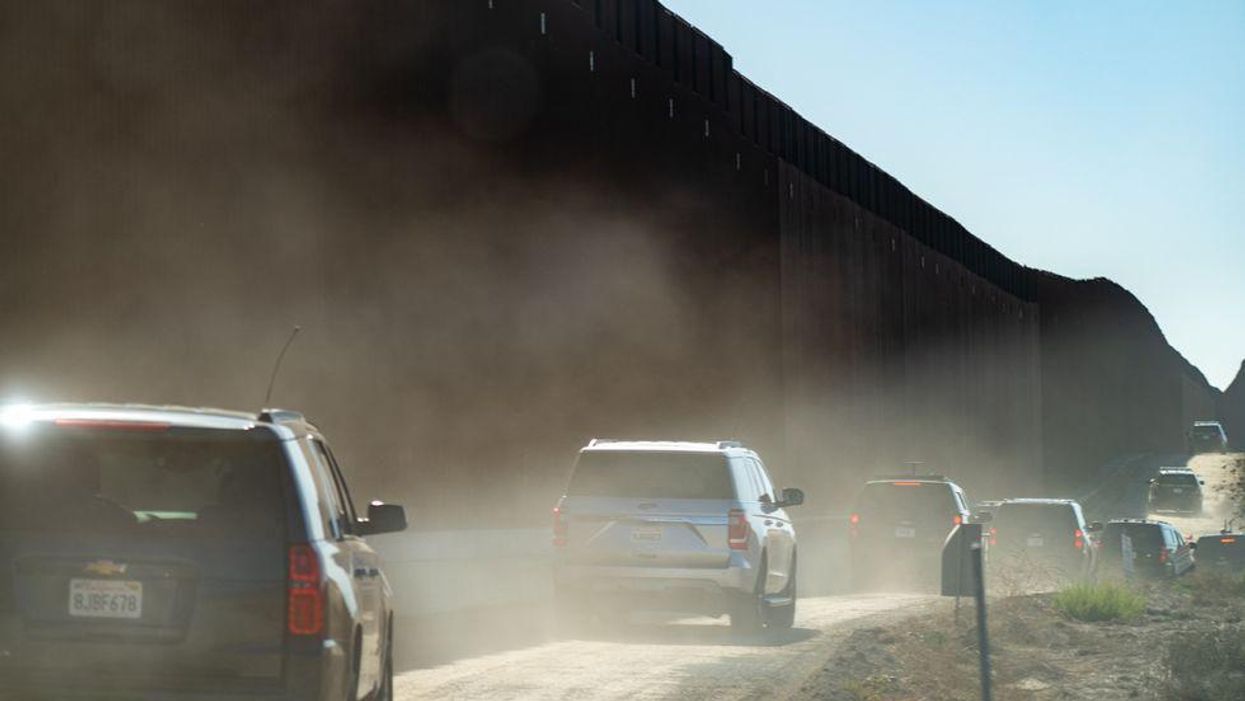A new government report has revealed that a secretive counterterrorism team interrogated dozens of American activists and journalists at the border as part of the Trump administration's sweeping response to fears about a large migrant “caravan" that was making its way to the United States' southern border.
A ProPublica story in May first revealed the involvement of the counterterrorism team. But the new report, from the Department of Homeland Security's inspector general, shows the unit's assignment was far broader than previously known.
According to the report, at least 51 U.S. citizens were flagged for interrogation — often based on evidence as flimsy as once having ridden in a car across the border with someone suspected of aiding the caravan.
Thirty-nine of those Americans crossed the border shortly after being flagged and were detained and interrogated. All of those interrogations, the report found, were conducted by members of the Tactical Terrorism Response Team, a little-known unit of Customs and Border Protection trained in counterterrorism, not immigration issues. The existence of the inspector general's report was first disclosed by Politico.
Tarek Ismail of the City University of New York, who's been investigating the role of the counterterrorism units and is part of a Freedom of Information Act lawsuit seeking documents on them, told ProPublica that he'd never seen the unit's work detailed in a government report before. “There's so little information out there about the TTRT that it's astounding that the report talks about them in such a matter-of-fact way, as if it's nothing to be concerned about," he told ProPublica.
In the fall of 2018, thousands of Central Americans migrating together for safety had become a fixation of President Donald Trump and his administration. The federal government sent a surge of intelligence and security forces to the southern border in what it dubbed Operation Secure Line, which ultimately led to the dragnet interrogations.
The government initially maintained that it was investigating confrontations between migrants and agents. But the Trump administration then said it was looking into whether activists were abetting smuggling by “encouraging" migrants to enter the U.S.
Taylor Levy, one of the citizens targeted by CBP's effort (and who was involved in the FOIA case that first disclosed the counterterrorism agents' involvement this spring), told ProPublica the new report validated her suspicions. “I'm not paranoid, my friends aren't paranoid. This really did happen. It was a targeted campaign of surveillance," she said.
In one case, the inspector general's report says, two lawyers were flagged for interrogation because they had previously crossed the border with someone suspected of running a WhatsApp group associated with the caravan. In another case, a U.S. citizen was flagged for crossing into the U.S. with someone who was, months later, identified as a potential caravan organizer.
The report notes that citizens are only supposed to be flagged for border interrogations when they are suspected of criminal activity themselves. But officials were either unaware of the decades-old policy or ignored it. At least two senior officials told investigators that people could be stopped for questioning for “virtually any reason," according to the report.
In a response included with the report, CBP agreed to update its training to clarify that flags “should only be created for law enforcement purposes." It did not say it would limit future interrogations to people suspected of criminal activity themselves.
CBP referred ProPublica to its published response to the inspector general's report, and it did not comment on whether any agents had been or would be disciplined in response to the report's findings.


